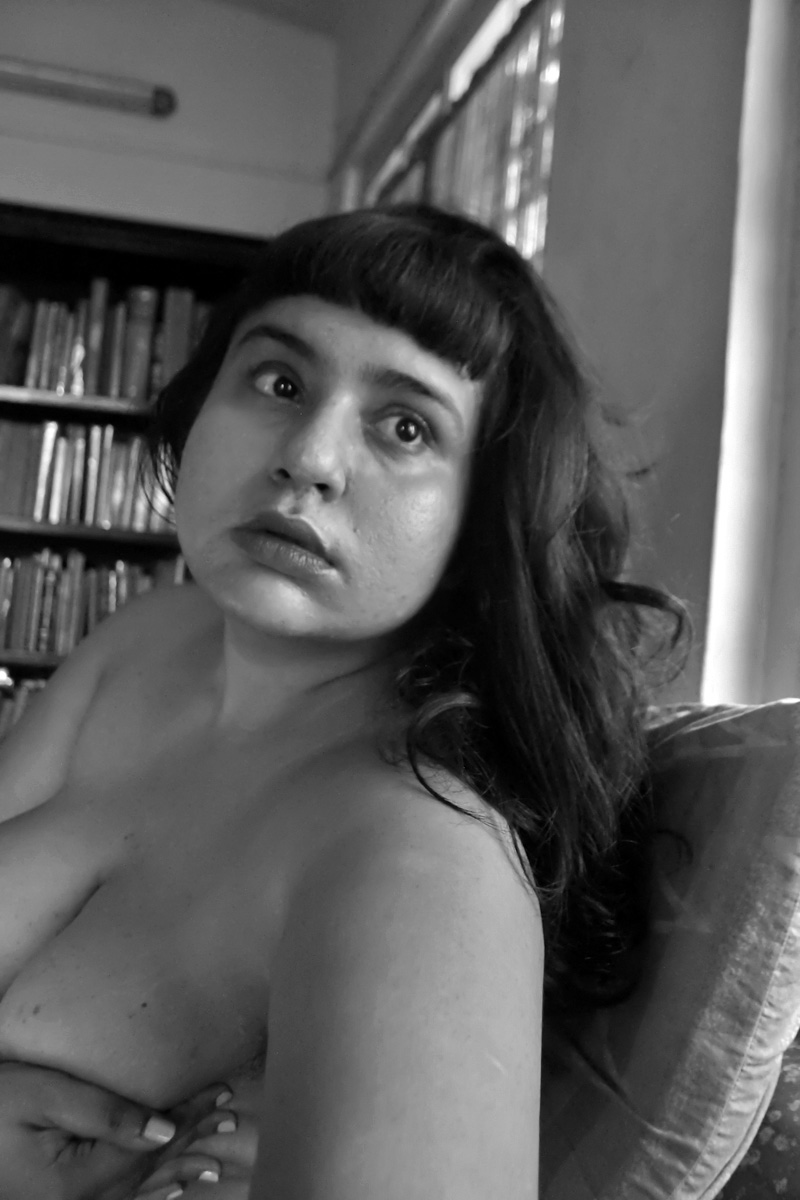Is this the face of evil? I don’t know.
When I was 9, my mother bought me a copy of the first Narnia book, The Magician’s Nephew. It was an edition that’s out of print now, with a richly illustrated cover and a gorgeous full colour map on the inside that drew me in from the moment I first held it in my hands. And once I dove into it, I was arrested. J.K. Rowling has commented in the past on how “the wood between the worlds” is such an incredible metaphor for literature itself, how libraries are the literal “wood between the worlds” (unless I grossly misremember) for those of us who love losing ourselves in different universes with merely the turn of a page. At that age, books and the worlds contained within them were my entire universe, and The Magician’s Nephew an enthralling new addition it it which I went back to over and over again. The dead world of Charn with its lifeless sun haunted my dreams and nightmares, and I spent hours and days and weeks lost in the creation myth of Narnia. I was fascinated by Jadis, by the idea of evil, the awakening of it, and the way it was reflected in her lesser counterpart, the professor. The Magician’s Nephew was one of my first brushes with the notion of evil in its allegorical, Christian depiction, even though I was far too young to understand the parallels C.S.Lewis had drawn. It consumed me wholly. The notion of a sanctified pristineness and that evil was something inherent, the seeds of which were sown unknowingly in the weak, that power for evil stemmed from a weakness to give in to it – this became the focal point of my solitary musings. From the age of 4, my parents had me convinced that I contained within me a “badness” I would forever have to fight to repress, and I wondered if someday I, too, would be evil.
I kept returning back to one phrase in particular, a phrase spoken by both the professor and Jadis – “ours is a high and lonely destiny.” I didn’t understand why it lured me so much – I would repeat it to myself, wondering what it really meant. Eventually I moved onto other books, other worlds, and buried it at the back of my mind, where it lurked, half forgotten…till today, when it suddenly rose up to the surface, as haunting as it had ever been, leading me to think of greatness and the quality of evil inextricably associated with it. What, really, is “evil”? I have little knowledge of theology and none of philosophy and whatever I know of psychiatry comes from my own dealings with mental illness over the past 10 years. I am not qualified to speak of evil or analyse its nature. But evil is a theme that pervades the greatest of literature through human history, and literature is something I do know a bit about.
Evil is a fall, a fall from goodness, but the seeds of it seem to be inherent, be it Lucifer or Morgoth. Villains are characterised by their misunderstood nature, often by their misunderstood greatness. And above all, evil is lonely, that high and lonely destiny that is embraced after the fall. It is assumed that these characters are misunderstood because humanity, as a whole, is good, and the understanding of evil is something that doesn’t come naturally to most. From misunderstood loneliness, to misanthropy, to power, to misuse of that power – this is the predictable trajectory of evil. Villains are not just evil, they are greatness perverted. But can greatness ever truly exist without a tinge of evil? Has greatness ever existed without evil being attributed to it? What sets the truly great among us apart from the rest is the talent they have, the unique qualities that only they possess. The great are seldom not isolated. How is it ever possible to know whether it was the isolation that led to the evil, or the other way round?
I, ofcourse, speak only of literary characters. And in the Western Canon, literary evil is often as not tied in with the Christian notion of it. When you try to apply those principles to the real world, things become much more complex. Depending on what views you subscribe to, evil in the real world can be attributed to anything between mental illness and race. But what I want to talk about today is the connection between evil, greatness and loneliness. What really is greatness? Something that sets a few people apart, something which has a lasting, timeless quality to it – after all, it’s only great writers, great scientists, great performers that the world remembers. A byproduct of exceptional talent which has been nurtured? Maybe. A rare mental condition? After all, many of those who we consider “great” have not exactly been neurotypical people, and I use that term loosely. Bipolarity is a common illness observed among the “greats” of the world. Talent, creativity, greatness – these are rare and exceptional qualities…and to be rare is to be isolated. “Misunderstood genuises”. (High and lonely destinies.) We live in a culture where normalcy is prized above all, and mentally aberrant people of any stripe are shunned. I know, I am one of them.
I am Bipolar and I have Borderline Personality Disorder – the latter illness coming very close to what popularly is seen as “evil”. People with BPD find it hard to find empathy for others and maintaining relationships with “normal” people is hard for us. We are considered “manipulative”, unpredictable and destructive – those who come close to us often leave with a feeling of being burned…evil, really, when you come to think of it. I have lost almost everyone I have ever loved – one by one, they all pulled away from me, leaving me alone in my misery. Maybe I hurt them. I am sure I hurt them. Maybe that makes me evil. Some days I am sure that makes me evil. I could end this essay here with the conclusion that evil is a form of mental illness, stay away from it kiddies, goodnight, go to bed, make sure the BPDs don’t come to get you in the dead of the night. But that would be an incomplete conclusion, because there’s more to it than that.
I might be evil, but I have also known it keenly from sources outside of myself. My mother abused me for 17 years, the first 17. That was evil. But she was also mentally ill – was THAT evil? What’s common to my mother and me is the loneliness we both battle(d). She had no friends that I ever knew of and I have very, very few. What’s different between us, though, is the way we deal(t) with it. She turned it outward, into an abusive rage with which she controlled the few people who couldn’t escape her. I, on the other hand, have chosen to focus it within myself and use it to create.
To go back to literature – creation is inherently good. Only the powers for good can create, and evil then perverts these creations. Evil can never make anything on its own – all its works are twisted, monstrous perversions, just like itself. But what if, in the real world, evil could also create something worthwhile? What if the people commonly seen as evil could harness the qualities that set them apart to make something the world would remember as great? I think that is where mental illness, talent, loneliness, “greatness”, and “evil“ intersect.
It’s a difficult balance, and a delicate one. Not the least because talent is something that’s hard to quantify and greatness even more so. Throughout history, there have been talented women, for example, whose greatness will never come to light because there are no records. And there have been, and will always be people whose greatness will remain contested. There is no one measure of this – after all, how is it possible to argue that someone who spent their life making the lives of those immediately around them better is any less great than the person who made lasting contributions to humanity when you take morality and “goodness” into account? These are all huge, loaded words, and I am still searching around for definitions while becoming increasingly certain that definitions for these concepts can only be relative. Am I “good”? Many who know me will probably say no, although goodness is something I have tried to attain all my life. Am I great? Certainly not, but I have aspirations to it. Likely that my mental condition will forever bar me from being good, just as it could propel me towards greatness if I put my mind to it. And that scares me. Because greatness is isolation and evil, and that – that scares me.
For the past 16 years, the only thing I have aspired to is being a wife and a mother, having a family and caring for them and nurturing them in obscurity and dying secure in the knowledge that I made the lives of those I loved better. But it seems like that is not the path life has chosen for me. My dreams have to be shelved and new ones made, new dreams imbued with greatness. My loneliness has forced my hand, forced me to channel myself into creativity, and make something I will be remembered for long after I’m dead. This is my high and lonely destiny and it terrifies me to know that it is something I can do if I try hard enough. It’s not easy to think of yourself this way. We are not brought up to such aspirations – I certainly wasn’t. Every moment is filled with second guessing, every creative effort drowned out by voices that tell me that I aim too high and that obscurity and a quiet, peaceful life is my due and I should work towards that instead. Who am I, after all? Some run of the mill writer with a crappy blog? The voices threaten to silence me. My determination melts away in the humid September air.
But somewhere, deep, down, I know. I know who I can be if I put my life into it, even if it is not apparent now. If I can silence the voices long enough to put out work, someday, far in the future, I’ll be a literary voice of a tenor I could be proud of. It seems utterly presumptuous to put a statement like this on a public forum where the world can mock me for aspirations I am not capable of. My resolve, though, is to dedicate myself and all my energies to this dream, or die in the attempt. When I get an idea I want to write on, I know how it makes me feel. It makes me feel alive in a way nothing else does. I become charged with a wild, manic energy, a desperate, insane force that takes me over until I have set the last word down. It conquers my depression, my physical illnesses – it forces me into a frenzy of words which tumble out in a nicotine, caffeine and adrenaline ridden wave which I ride until I am done and slump back, lifeless again. Bipolarity. I ride waves of true mania when I write, nerve wracking, teary waves which transform me into a creature I don’t even recognise at other times. It is madness, and someday it could be greatness if I can channel it in the right direction, if I forsake all else for this, this one thing, the fucking craft. But to forsake all else – what of my humanity then? What will save me from devolving into evil? I don’t know. There must be a balance somewhere, but I am not sure if I’ll be able to find it.
There was a time when my capacity for infinite, undiluted, unconditional love was my strongest quality. But it’s been gone a long while, and what I am left with is a mad, creative force and not enough willpower to harness it evenly. Even now, I want to love, I want friends, a family, children. I do not, cannot believe that creativity should come at the cost of my humanity, but that is what has increasingly been happening. Must I live with this ever widening rift inside me that separates my loving self from the creative one? Could I ever bridge it? Could I ever be whole? Or is the path ahead of me one rife with madness, loneliness and a legacy that will outlive me? A legacy that will say “she had talent, but her evil drove away everyone she loved”?
Answers on a postcard, please.



